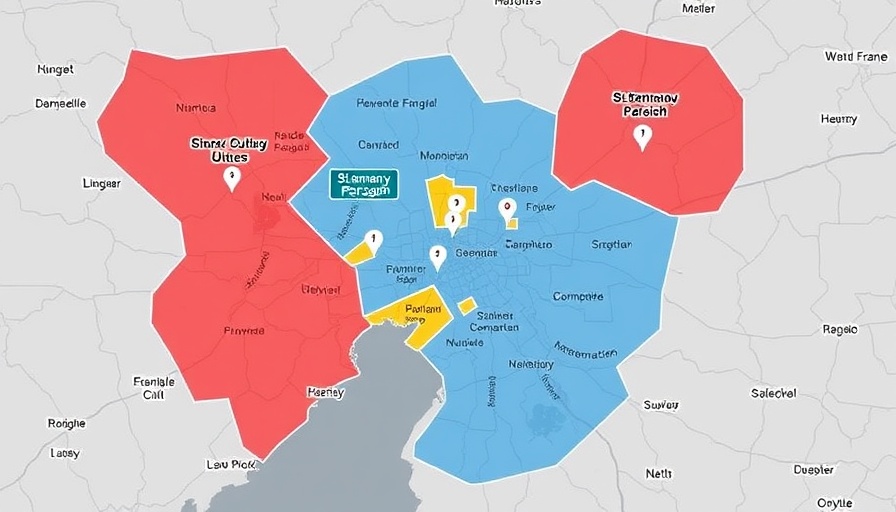
Understanding the Controversy: Florida's 'Alligator Alcatraz'
The 'Alligator Alcatraz,' formally known as the Krome Service Processing Center in Florida, has made headlines recently due to a ruling from a U.S. District Judge that halts further expansion plans. This facility currently houses immigrants awaiting legal proceedings, and like many other immigration centers across the United States, it has been the target of criticism. Concerns range from overcrowding to the humane treatment of individuals caught in a complex immigration system. This development raises important questions about the future of such centers and their impacts on the immigrant population.
The Impact of Legal Decisions on Immigration Policies
Judges play a crucial role in the landscape of immigration, interpreting laws that govern how immigrants are treated while their legal statuses are determined. The recent halt in expansion reflects a broader concern about the conditions in which detainees are held. Many advocates argue that expansion would exacerbate existing issues such as overcrowding, poor healthcare access, and mental health challenges for detainees, particularly in facilities that have been described as inhumane by critics. This ruling is a reminder that the legal system is not only about rules but also about accountability and moral responsibility.
Why This Matters to Louisiana Residents
For older adults in Louisiana, particularly those aged 55 and older, migration debates may feel distant, yet they are closely intertwined with community values regarding compassion and fairness. Many retirees believe that their understanding of right and wrong is informed by their life experiences, leading to a desire for humane treatment for individuals in similar situations. An informed understanding of immigration policies can empower individuals to engage in discussions that affect community integration and address the needs of vulnerable populations.
Parallel Examples of Immigration Center Issues
Historically, immigration detention centers across various states have seen controversial treatment and conditions. Similar situations have arisen in Texas, where facilities were found to have inhumane conditions, drawing significant public and media scrutiny. This mirrors the experience in Florida, emphasizing that such issues are not isolated; they resonate throughout the country. Notably, it leads to a conversation about how states address humanity within their immigration policies.
Future Trends: What This Ruling Could Mean
As we look ahead, this legal decision could set a precedent for how immigration facilities will operate across the United States. Advocates for immigration reform may use this ruling as a springboard to not only halt expansions but also push for significant reforms in the treatment of immigrants. It raises the prospect that states could see increased scrutiny and demand accountability for the treatment of individuals while their legal matters are resolved.
Empowering Older Adults with Knowledge
For our seniors, knowing the functioning of these centers and their implications can be a powerful tool in fostering community support for immigrants. Engaging with local representatives on these issues can help ensure that the voices of diverse populations are heard and respected. Those aged 55 and older in Louisiana can play a vital role in advocating for humane treatment and better policies.
Bottom Line: A Call to Compassion
The court’s halt on expanding the 'Alligator Alcatraz' offers a moment for reflection on how we treat immigrants and the importance of human rights. It calls for a collective commitment to foster understanding, compassion, and advocacy for a system that fairly addresses the needs of individuals facing legal uncertainties. As this conversation unfolds, it is essential for everyone, especially seniors, to stay informed and involved in these crucial discussions.
Empower yourself with knowledge, share insight, and consider how you can support humane policies that extend beyond borders. Only together can we create communities that value justice, equity, and empathy.
 Add Row
Add Row  Add
Add 



Write A Comment